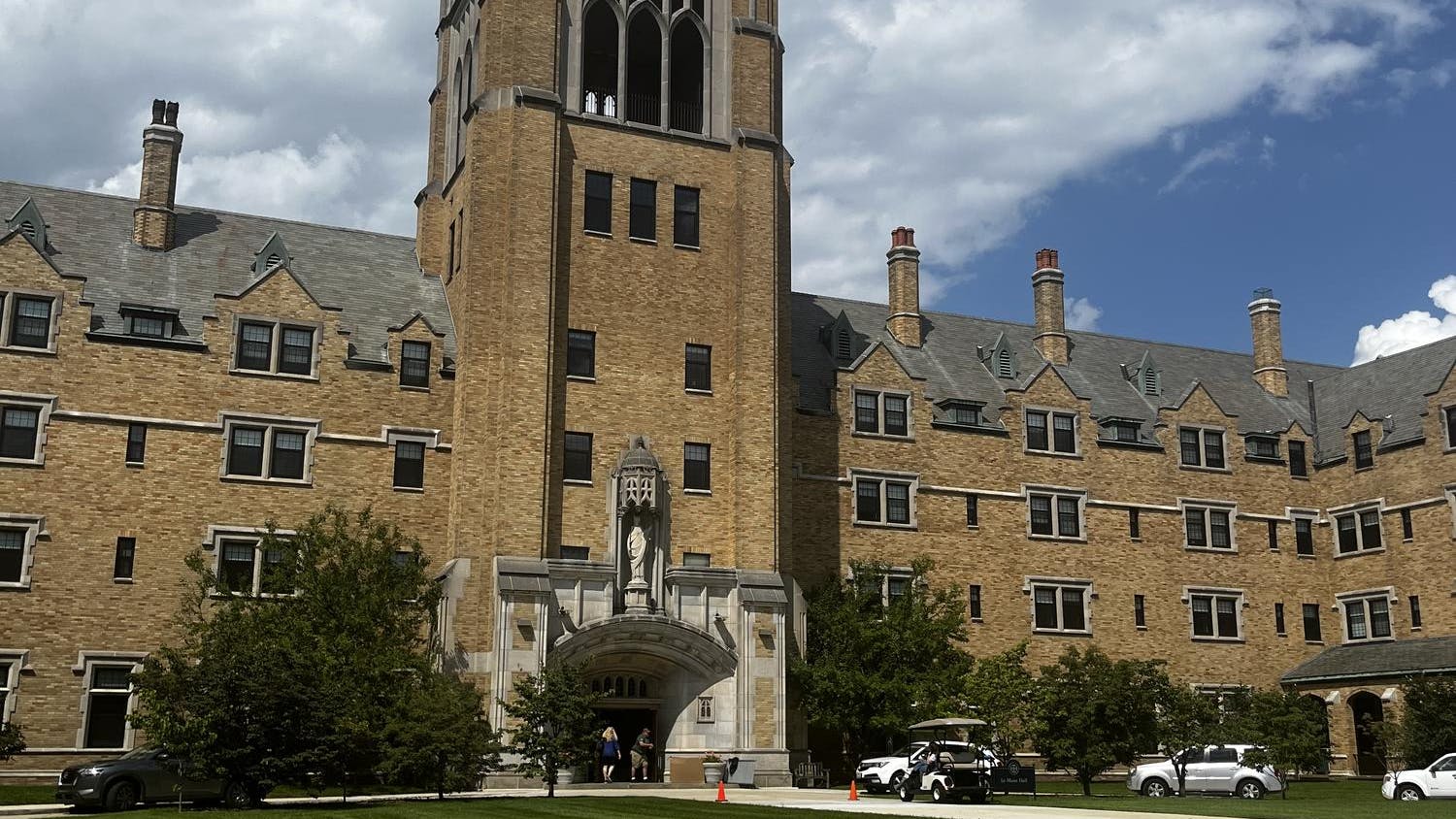Opal Tometi, a co-founder of the Black Lives Matter movement and the executive director of the Black Alliance for Just Immigration (BAJI), spoke to an overflowing DeBartolo Hall lecture room Monday evening regarding structural racism and the importance of rising up to combat discrimination.
Hosted by Multicultural Student Programs and Services, the lecture was part of Notre Dame’s fourth annual Walk the Walk Week, a series of events designed to encourage the Notre Dame community to reflect on issues surrounding diversity and inclusion on campus.
Born to Nigerian parents who immigrated to the United States, Tometi said she became involved with the Black Lives Matter movement because she was unable to remain silent.
Working with BAJI, Tometi regularly engaged herself in the plight faced by the black and immigrant communities. But when she heard of George Zimmerman's — the man who fatally shot an unarmed African American boy, Trayvon Martin, in Florida — acquittal, Tometi said she was enraged.
“I saw that [my brother] would have to grow up and navigate what his value was in the world … I just couldn’t have the young people in my life thinking that this was okay and that it was the end of that story,” Tometi said.
Reaching out to the other co-founders of the movement, Patrisse Khan-Cullors and Alicia Garza, Tometi said she felt she connected to their unapologetic stance regarding the injustice facing the black community.
“We started utilizing Black Lives Matter to amplify not only the issue of police brutality and extrajudicial killings, but we were intentional to say that this is a structural issue of anti-black racism in our society that shows up in housing, in education, in our health care system,” she said.
Tometi stressed that the Black Lives Matter movement defines its work from a place of intersectionality.
“We believe we have to take into account the full scope of our identities and the full scope of our experiences,” she said.
Despite having more black elected officials and black celebrities than ever before, a crisis still exists within the African American community, Tometi said.
“For us, it was important that we name Black Lives Matter, Black Lives Matter … we couldn’t be naive, and we couldn’t operate as though we need a society that’s colorblind … our skin color is our skin color, and it’s beautiful and brilliant and we’re happy with it,” she said. “What needs to change is the ways in which power allows for folks to subject us to harm, and the way in which our systems are orchestrated and allow for our communities to be disproportionally impacted by racism.”
Discussing the importance of looking at the root causes of injustice in our society, Tometi said we must continue to see our communities marginalized at mass unless we consider the systemic problem. Tometi urged the audience to rise up and “bend the arc towards justice.”
“We can have a different world. We don’t have to have these types of [negative] ideologies rampant in our society … we have agency, we have choice, we have power, if we deal with the root cause of the issues of our day,” she said. “The differences in our society don’t have to end up in disparity. We need to celebrate and honor our differences because they’re beautiful.”













